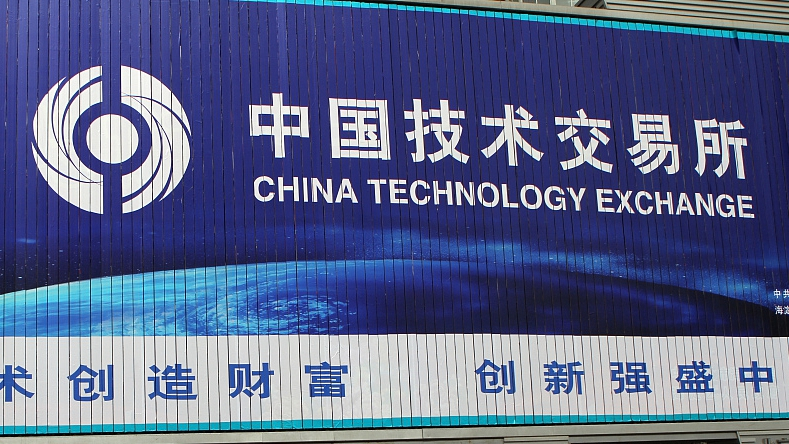
Opinion
22:22, 17-Mar-2019
China's new law outlaws forced technology transfer
Kong Qingjiang, Zhou Weihuan

Editor's note: Kong Qingjiang is the dean of the School of International Law under China University of Political Science and Law. Dr. Zhou Weihuan is a senior lecturer at the Faculty of Law, UNSW Sydney, and a Member of the Herbert Smith Freehills China International Business and Economic Law (CIBEL) Centre. The article reflects the authors' opinions, and not necessarily the views of CGTN.
Technology transfer has been one of the major issues in the U.S.-China trade frictions and perhaps a general concern of developed economies.
The main complaint has centered on China's "forcing" technology transfer from foreign companies to their Chinese local partners as part of China's foreign investment policy and laws - so that China has been "stealing" foreign advanced technology.
However, we know that China has been paying tons of money for foreign technology. In 2017, for example, the licensing fees and royalties that China paid for the use of foreign technology reached almost 30 billion U.S. dollars. It is therefore at least debatable whether such allegation can hold.
As a matter of fact, the commercial practice concerning the acquisition of technology is often found to be one based on private negotiations with no government participation. In this context, there is no forcing to speak of in such a transaction.
According to some studies, such biased and often baseless accusation of forced technology transfer comes out of the anxiety about the rise of Chinese companies in global technology-based competition. Aspiring to beat their Chinese peers in research and development (R&D) and maintain their longstanding competitive edge, some foreign companies even resort to this tactic. Bringing China to the WTO dispute settlement proceeding is such a tactic.

An advertising board of the China Technology Exchange. /VCG Photo
An advertising board of the China Technology Exchange. /VCG Photo
Under the WTO, the question is whether there are any Chinese measures that do mandate technology transfer in a way that violates WTO rules, and if so, whether a WTO dispute may change the situation.
In 2018, the U.S. and the EU sued China on this matter respectively, both focusing on various provisions of the existing Chinese laws on foreign investment.
Now, the most interesting part of these disputes may no longer be the legality of the challenged Chinese measures, as China has just adopted its Foreign Investment Law (FIL), which will come into effect on January 1, 2020, and replace the existing three laws governing foreign investment.

VCG Photo
VCG Photo
The FIL contains one relevant provision to address the issue of forced technology transfer.
Article 22 provides that technology cooperation between foreign and Chinese entities shall be undertaken voluntarily based on commercial rules.
The terms and conditions for such cooperation shall be negotiated by the entities themselves. All levels of government and their officials are prohibited from forcing technology transfer through administrative means.
The legislators must have had the knowledge that a large number of the forced technology transfer accusations are not as solid as they sound. Yet, the FIL still incorporates the provision banning forced technology transfer.
It can only be interpreted that the Chinese authorities are sincere in prohibiting the practice of forced technology transfer, for they are aware stronger protection of intellectual properties is instrumental to the nurturing of an innovation-friendly environment.
With the adoption of the FIL, it is now clear to all that China has outlawed the alleged law and practice concerning forced technology transfer. The challenges, which were raised by the U.S. and the EU, had lost their legal basis.
For the purpose of easing the tension in the trade relations between the major trade partners, it is most advisable for the U.S. and the EU to reach a conciliatory settlement and withdraw their complaints of the WTO-inconsistency allegation.
More importantly, it will be a blessing if the adoption of the FIL and the outlawing of forced technology transfer will appease the noise that has beset the trade relations between China and its major partners.
(If you want to contribute and have specific expertise, please contact us at opinions@cgtn.com.)

SITEMAP
Copyright © 2018 CGTN. Beijing ICP prepared NO.16065310-3
Copyright © 2018 CGTN. Beijing ICP prepared NO.16065310-3